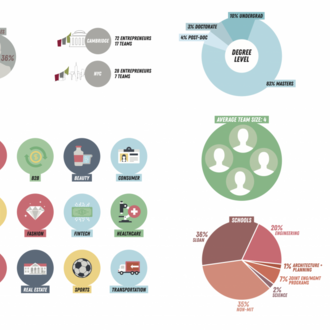A new study from MIT Sloan highlights new communication styles of students including 5 skills millennial MBAs want to improve on and some remarkable ones that they don’t want to get better at.
Cambridge, Mass., August 28, 2017—One of the defining elements of the knowledge economy is communication. Whether that means communicating upward, downward, inside or outside organizations—almost everyone in the organization needs to do it.This year for the first time ever, the MIT Sloan Management Communications Group polled its incoming MBA students to gauge what communications looks like within organizations today and also to gauge what skills the next generation of managers hope to master. The study was sent to HOW many students of which 295 responded or about 72 percent of the class. This study shows that millennials differ significantly from their older colleagues in the ways in which they use technology and the skills they believe are most important in the workplace. Some study highlights follow:
Millennials aren’t comfortable communicating across cultures, and getting better isn’t a high priority. Communicating across cultures was the one skill students were most uncomfortable with (only presenting via video ranked lower), but it was also one of the skills they were least interested in improving on over their time as MBAs. Only email management was ranked as a lower priority.
“In an ever-increasingly global world, this provides a significant teaching moment,” says Neal Hartmann, senior lecturer and head of the Management Communications group. “It becomes incumbent for preparing future principled and innovative leaders to recognize the importance of communicating successfully across cultures and to positively influence their interest in developing these competencies.”
Writing isn’t a part of modern work, unless it’s an email or a PowerPoint: Though every student reported email writing was a core part of their job responsibility, less than half did any meaningful longer form writing. Of those that did, it wasn’t a daily part of the work. Half of those who did write longer reports only did so on a monthly (or less frequent) basis. Compare that to 85% of student who said that producing presentations was a meaningful part of their job responsibilities, and that two thirds of them (67%) produced that output on a daily or weekly basis.
Skills to Improve Upon: When we asked students what skills they would like to improve on, The top 8 skills students want to improve were:
- In-person presentation
- Meeting management
- Data visualization
- Giving and receiving feedback
- Writing
- Presenting online or via video
- Intercultural communication skills
- Email management
“We strive to prepare students to become principled leaders in the future,” says Kara Blackburn, senior lecturer and coauthor of the survey. “That means balancing the skills students know they want, and the ones we know are critical for future leaders. The results of this study have affirmed our emphasis on developing and delivering effective and engaging presentations, since students view this as a critical skill.” As students see the importance of visual communication in the workplace, MIT Sloan will be adding a required course this spring as part of its Business Analytics certificate called, “Communicating with Data.” “Modern professionals need to be as skilled with visual communication as they are with written and spoken communication,” says Miro Kazakoff, lecturer, developer of MIT Sloan’s Data Communications curriculum, and a study co-author. “In the era of bigger data, making the right decision and convincing others to act on it requires an ability to read and write in pictures. The power of visuals is their ability to convey relationships that are increasingly challenging to explain with just words.”



